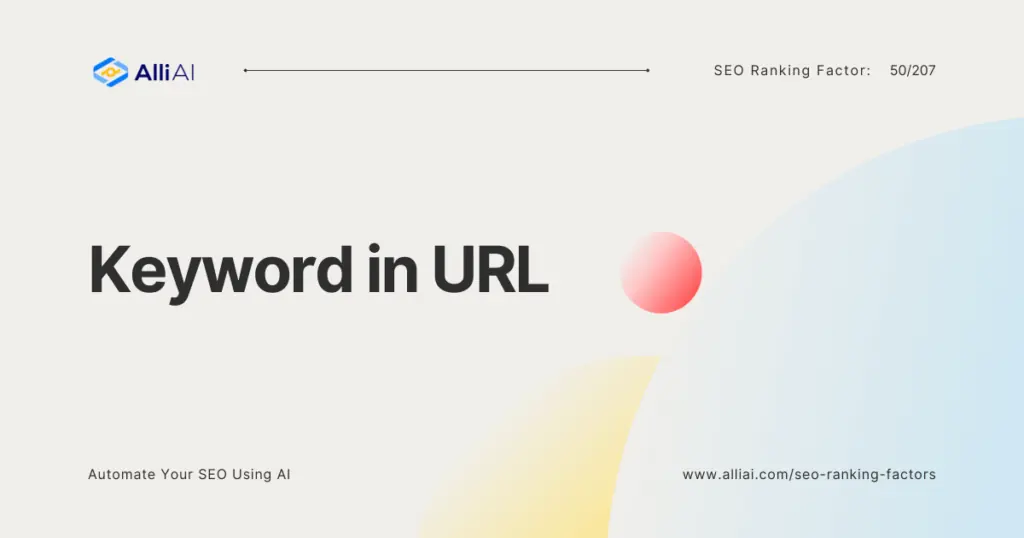What is Keyword in URL?
Including keywords in URL refers to the practice of integrating relevant and targeted keywords into the web address of a specific webpage. A URL (Uniform Resource Locator) is essentially the address of a document or resource on the internet. To put it into a real-life analogy, think of the internet as a massive library, and each webpage is a book. The URL is the book’s unique code or reference number that helps you locate it. When this reference includes clear, descriptive keywords, it’s akin to a book’s title giving you immediate insight into its content before you even open it. This practice aids both users and search engines in quickly identifying the topic or theme of a webpage.
Why is Keyword in URL Important in SEO?
The importance of keywords in the URL for SEO cannot be overstated. Search engines like Google use URLs, among many other factors, to understand the content of a webpage. A keyword-rich URL can provide search engines with a clear context of your page, enhancing its relevance when those keywords are searched. It is also pivotal for user experience; a descriptive URL can improve click-through rates from search engine results pages (SERPs), as users are more likely to click on a link that clearly indicates what the page is about.
How Keyword in URL Affects SEO
Several studies and data analyses have shown the impact of keywords in URLs on SEO. A notable study by Backlinko, analyzing over one million Google search results, found that URLs containing a keyword have a significant advantage over URLs that don’t. It highlights that a keyword in the URL can act as a relevancy signal, which could potentially improve rankings.
Incorporating keywords into URLs contributes to SEO in several ways:
“1. Relevancy and Context: Provides search engines with additional context on the page’s content, enhancing its relevance for specific queries.
2. Improved Click-Through Rate (CTR): A descriptive URL can significantly influence whether a user decides to click on a link. Seeing a relevant keyword in the URL reassures users of the content’s relevance to their search.
3. Link Anchor Text: When URLs are used as the anchor text for links, having a keyword in the URL automatically provides keyword-rich anchor text. This is beneficial since anchor text contributes to how search engines understand the content of the linked page.”
FAQ
How Many Keywords Should Be in a URL?
The URL should be concise while containing the most important keyword for the page. Overstuffing the URL with keywords can have a negative impact, making it appear spammy both to users and search engines. A well-crafted URL often contains one or two keywords.
Does a Keyword in the URL Need to Be Exact Match?
While an exact match keyword can be beneficial, it is not always necessary. More importantly, the URL should be readable and descriptive. Using semantically related keywords or slight variations can still provide SEO benefits without compromising readability.
How Do I Add Keywords to My URL?
Adding keywords to your URL involves careful planning during your website’s architecture phase or when creating new pages. Consider the primary keyword that best describes the page’s content and integrate it into a short, descriptive slug part of the URL. Ensure it is natural and follows your website’s existing URL structure.
Conclusion
Integrating keywords into your website’s URLs is a nuanced, yet potent tactic that contributes substantially to your overall SEO strategy. By enriching URLs with relevant keywords, you’re essentially ensuring that both search engines and users have a better understanding of what your page content entails, right from the SERPs. This simple practice could immensely boost your site’s visibility, click-through rates, and ultimately, its rankings in search engine results. Remember, the essence of SEO is about making your content easily discoverable and accessible, and having keywords in your URL is a step in the right direction.






